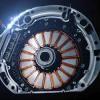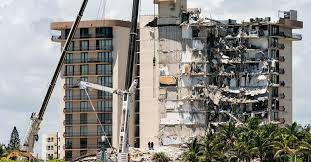
Breaking News
 DNI Tulsi Gabbard Confirms Explosive 2020 Election Fraud Revelations Coming...
DNI Tulsi Gabbard Confirms Explosive 2020 Election Fraud Revelations Coming...
 Jews and the Great Replacement
Jews and the Great Replacement
 Ivermectin Complete Dosage Guide
Ivermectin Complete Dosage Guide
Top Tech News
 The mitochondria are more than just the "powerhouse of the cell" – they initiate immune...
The mitochondria are more than just the "powerhouse of the cell" – they initiate immune...
 Historic Aviation Engine Advance to Unlock Hypersonic Mach 10 Planes
Historic Aviation Engine Advance to Unlock Hypersonic Mach 10 Planes
 OpenAI CEO Sam Altman Pitches Eyeball-Scanning World ID to Bankers
OpenAI CEO Sam Altman Pitches Eyeball-Scanning World ID to Bankers
 New 3D-printed titanium alloy is stronger and cheaper than ever before
New 3D-printed titanium alloy is stronger and cheaper than ever before
 What is Unitree's new $6,000 humanoid robot good for?
What is Unitree's new $6,000 humanoid robot good for?
 "No CGI, No AI, Pure Engineering": Watch Raw Footage Of 'Star Wars'-Style Speeder
"No CGI, No AI, Pure Engineering": Watch Raw Footage Of 'Star Wars'-Style Speeder
 NASA's X-59 'quiet' supersonic jet rolls out for its 1st test drive (video)
NASA's X-59 'quiet' supersonic jet rolls out for its 1st test drive (video)
 Hypersonic SABRE engine reignited in Invictus Mach 5 spaceplane
Hypersonic SABRE engine reignited in Invictus Mach 5 spaceplane
 "World's most power dense" electric motor obliterates the field
"World's most power dense" electric motor obliterates the field
 The Wearables Trap: How the Government Plans to Monitor, Score, and Control You
The Wearables Trap: How the Government Plans to Monitor, Score, and Control You
A Few Things About Reinforced Concrete High-Rise Condos

The second most remarkable thing about the sudden collapse of the Florida condo building was the rush to assure everyone that this was a one-off catastrophe: all the factors fingered as causes were unique to this building, the implication being all other high-rise reinforced concrete condos without the exact same mix of causal factors were not in danger.
Before we accept this conveniently feel-good conclusion, there are a few things we should consider about reinforced concrete high-rise condos.
1. This may seem too obvious to be important, but concrete is a heavy material. Fill a 5-gallon bucket with wet concrete, let it cure (harden) and then pick the bucket up–if you can.
2. Conventional concrete is not water-proof; it absorbs moisture. Construct a concrete wall against an excavated cliff of damp earth saturated with underground moisture and the concrete wall will be damp unless it is sealed essentially perfectly–no easy task.

 Rule by Quacks
Rule by Quacks


